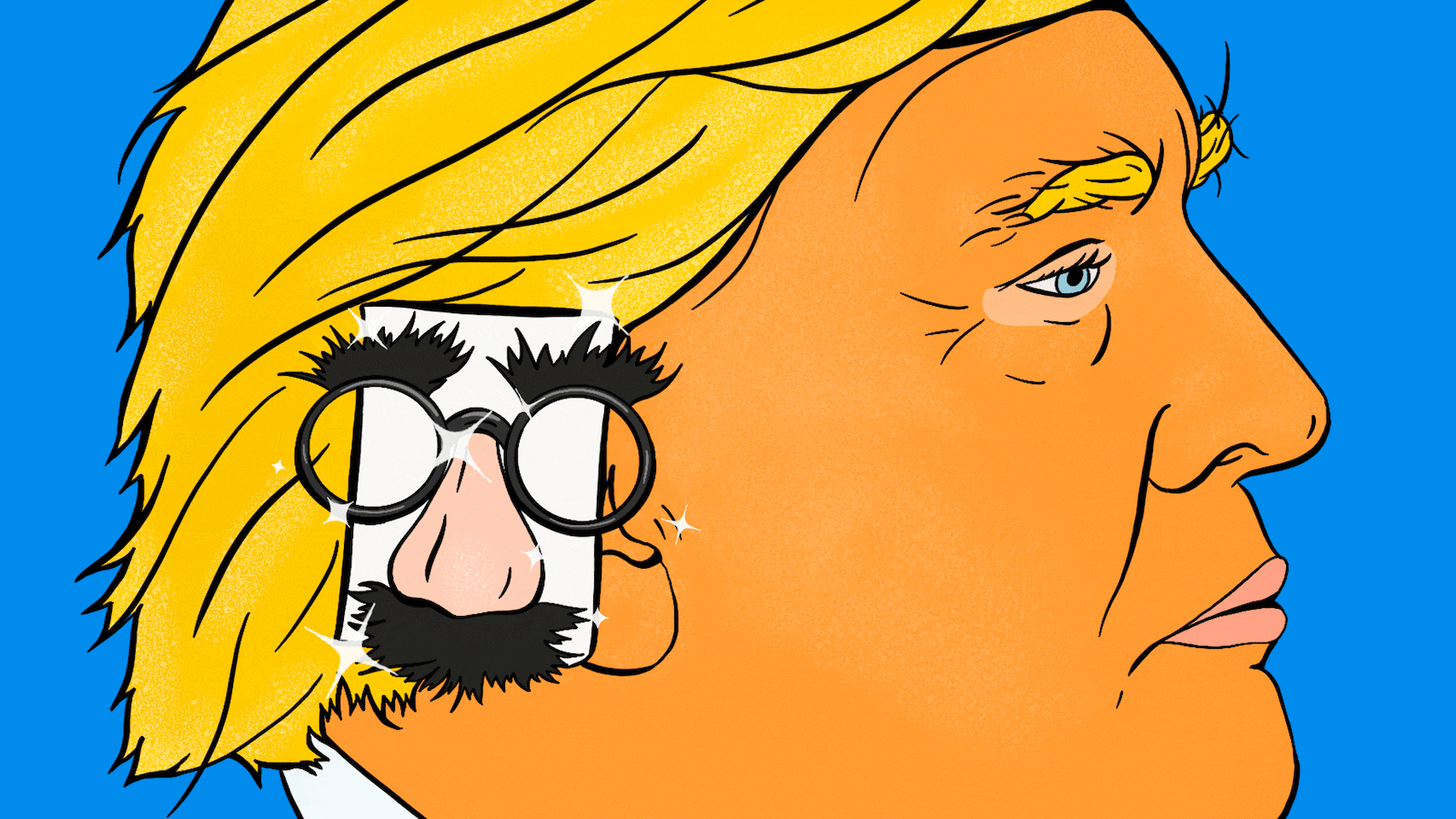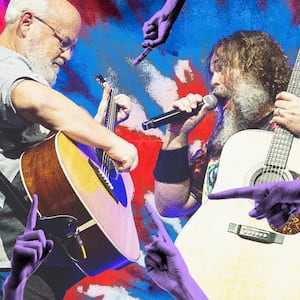Whenever tragedy strikes, I turn to comedy. Comedy has always been a coping mechanism for me to process news. Last week, when former President Donald Trump was shot at his rally in Pennsylvania, I dealt with my shock and sadness by posting a graphic on my socials of the instantly iconic image of Trump with blood on his face, pumping his fist. Under the photo, I wrote, “How long before this becomes merch?”
As expected, I received a mix of positive engagement and furious backlash. I had conflicting thoughts. On the one hand, this joke was making fun of Trump’s habit of turning everything he does into merchandise. On the other hand, I was trying to be funny after a former president was nearly killed. I ended up taking down the post and that caused my head to circle with questions: Does that mean I didn’t stand up for comedy? Where is the line? Did I cross it?
I’ve struggled with that question for my entire life. Growing up, at the dinner table, I was always saying something inappropriate. My mom would give me a look or a kick under the table. This is not my family dinner table. This is a moment in history where a former president was almost killed. But my question still stands: When can I make the joke?
After Dave Chappelle made controversial jokes about the trans community in his special The Closer, Netflix employees walked out in protest. Netflix CEO Ted Sarandos responded by saying, “We don't allow titles on Netflix that are designed to incite hate or violence, and we don't believe The Closer crosses that line.” As a comedian, I believe that Sarandos stood for comedy and I am grateful to him for that. Yet society still debated: Did Chappelle go too far or has the world become too soft?
In order to get closer to answering these questions, I’ve been turning to comedy’s past for advice. Johnny Carson, who hosted the Tonight Show from 1962 to 1992, is perhaps my biggest comedic inspiration. In an interview with Barbara Walters, Carson once said: “I think one of the dangers if you are a comedian...if you start to take yourself too seriously and start to comment on social issues your sense of humor suffers somewhere.”
Yet in 1981, Carson hosted the Oscars just one day after Ronald Reagan was shot. Carson remarked, “He happens to be in very good spirits. After all you must remember this is a man who yesterday, while he was in the hospital unable to speak, wrote on a sheet of paper: ‘All things considered, I’d rather be in Philadelphia.’ So tonight, the show does go on.” While a delicate joke, Carson managed to gracefully touch on the attempted assassination of Reagan.
Fast forward to 2001. 18 days after 9/11, Saturday Night Live was scheduled to return to the air. The nation was grieving, and SNL creator Lorne Michaels invited Rudy Giuliani, then mayor of New York (and more recently the unsuspecting star of the Borat franchise), on the show. The show began with Michaels asking Giuliani: “But can we be funny?” The mayor replied: “Why start now?”
In the aftermath of the shooting last week, Bill Maher posted a video of his initial onstage reaction to the Trump assassination attempt. He began by saying, “I‘m sure there will be jokes that people will make because they hate him so much they wished it went the other way. Not for me.” Later on, Maher quipped, “He’s the luckiest motherfucker that has ever walked the face of the earth. Again I’m happy he’s OK.” Maher managed to balance comedy with empathy. His reaction made me wonder how we, as comedians, can distinguish between not wanting a former president to die and bringing levity to difficult social and political moments.
And then, Jack Black’s comedic rock band Tenacious D canceled their remaining tour dates after band member Kyle Gass made a joke about the assassination attempt. “Don’t miss Trump next time,” he replied when asked for his birthday wish.
If there is a line, then Gass certainly crossed it. But I have to question whether there’s a line at all. Does the line move with time? Does comedy’s role evolve with the world? Or, like death and taxes, should comedy remain fixed?
When I performed at this year’s White House Correspondents’ Dinner, I put the comedic line to the test. I stood up in the middle of the room and began with an impression of Trump reacting to a clip of Barack Obama roasting him. I made sure to call President Joe Biden “Sleepy Joe” and, still in Trump’s voice, roasted Kristi Noem for killing her puppies. I even referenced the man who lit himself on fire outside of the courthouse where Trump was being tried. I proceeded to go into my Bernie Sanders, Mitch McConnell, and Obama impressions.
After my performance, a headline read: “Comedian Matt Friend draws gasps at White House Correspondents Dinner.” On CNN the next day, I explained that what I did was summarize the news in other people’s voices. Each of those people did all of the work for me. And yet, this was a moment where I put my central question into action, asking myself, “When can I make the joke and where is the line?” That night, Kristi Noem’s puppies were nowhere near the line.
As a comedian coming up in an age of extreme polarization on social media, I think a lot about how we can experiment with material in the face of such intense backlash. Imagine if Lenny Bruce had X, George Carlin had TikTok, or Rodney Dangerfield had Instagram. Comedians are supposed to have a “don’t let them see you sweat mentality,” but the truth is, we’re all human.
I’d be lying if I said that comments on social media don’t impact me. And yet, I want to keep testing the waters. I want to keep creating and making you laugh, even—especially—when times are hard. Because that’s the only way I’ll ever evolve and discover where the comedic line is for me. As for why I’m posing these questions online? Well, we all know the comments will be good.
Matt Friend is a comedian and impressionist who performed at the 2024 White House Correspondents’ Dinner, headlined the Netflix Is A Joke Festival during his nationwide stand-up comedy tour and is launching a podcast on Bill Maher’s Club Random Network called “Friend In High Places.”







